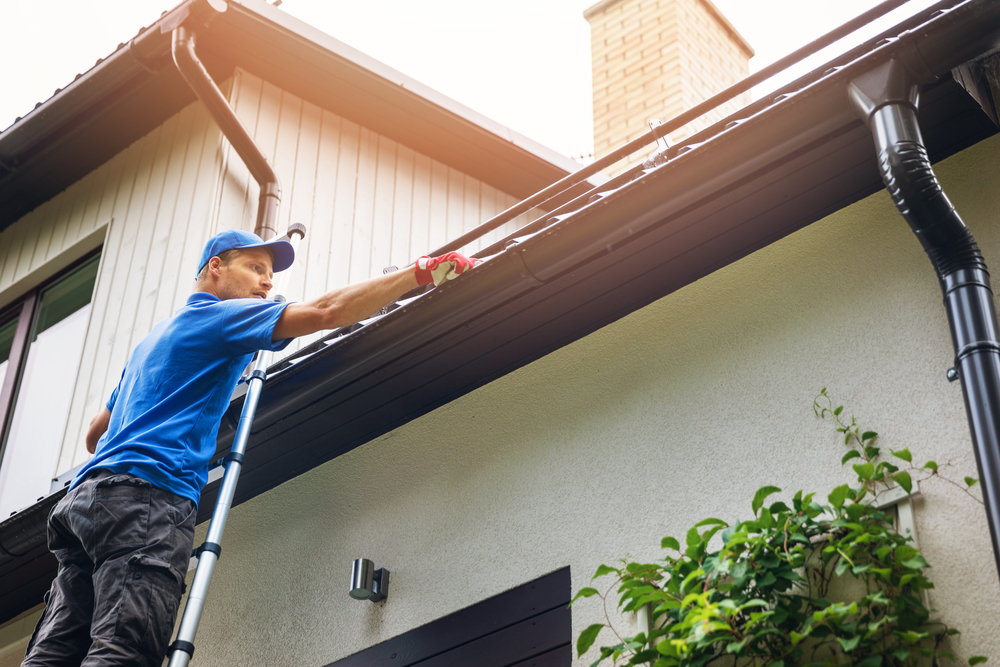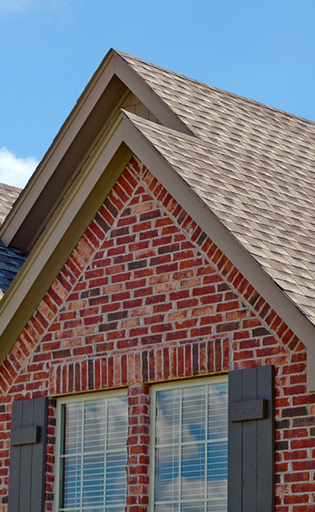How Long Do Gutters Last

Gutters are an important part of protecting your home from water damage. When gutters are working properly, they direct water away from the foundation and various other parts of the home.
Gutters last for many years when cared for properly. Maintaining gutters means inspecting them on a regular basis and cleaning debris out as needed. However, there are numerous things that can cause gutters to wear out more rapidly, including how they are installed and how much water flows through them.
Gutter Lifespan
The lifespan of individual gutters varies depending on how well they are cared for over time. It is common for gutters to last between 15 and 25 years, depending on how well they are installed and how often they are cleaned out. Of course, this can vary quite a bit. Proper care by homeowners is essential for protecting their home from water damage costs. No matter how old your gutters are, they should be inspected annually to make sure they are doing their job.
Average Gutter Lifespan Depending On Material Type
- Galvanized Steel – 20 years
- Aluminum – 20 years
- Vinyl – 25 years
- Copper – 50+ years
If you have questions about how long gutters last or how often you should clean your gutters out, contact a professional. A gutter installation expert can help with the installation and inspection of new gutters as well as cleaning of existing ones.
How Often Should You Replace Your Gutters?

Most experts agree that gutters should be replaced when they are over 10 years old, although some people replace the gutters on their homes every seven to eight years. To properly determine how long gutters last, homeowners should consider how much wear and tear they have endured over time.
Gutters that are underperforming or not properly maintained are more likely to break down in a shorter period of time. Age isn’t the only indicator here, though it is considered when making how long gutters last determinations.
In some cases, homeowners who installed certain types of gutter materials may find that they need to replace their gutters earlier due to how these products perform over time. In other cases, how long gutters last depends on how well they were manufactured.
Replacing your gutters every 10 years is a good rule of thumb for how often you should check them out to make sure that they are still doing their job effectively. This will also help the new gutters have as long of a lifespan as possible.
Should Gutters Be Replaced When You Replace Your Roof?
No, gutters don’t need to be replaced with your roof. The materials and installation of the gutters and how long gutters last will vary depending on how old they are and how well they were installed in the first place.
Gutters can be made from a number of different materials. Metal gutters usually last longer than others because they don’t corrode as easily. Aluminum gutters are popular because they hold up well and they won’t rust like galvanized steel gutters will.
One reason how long gutters last depends on how well they were installed is because of how water flows through them. The more debris and leaves that get caught in the gutter, for example, the faster they will wear out.
In addition, how long gutters last is based on how many times it has rained or how much snow has been dumped into them since they were installed. If a homeowner uses his or her gutters regularly for carrying water away from the home, how long gutters last depends on how well they are maintained.
How to Extend the Life of Your Gutters
Increase the already long lifespan of your gutters by practicing the following good gutter care habits:
- Clean the gutters twice a year
- Avoid putting pressure on the gutters by leaning a ladder against them
- Apply sealant every five years
- Perform regular maintenance checks (once a year on average)
- Don’t use abrasive chemicals when cleaning the gutters
Is it time for your gutters to be replaced? Contact us for a free, no-obligation quote.

